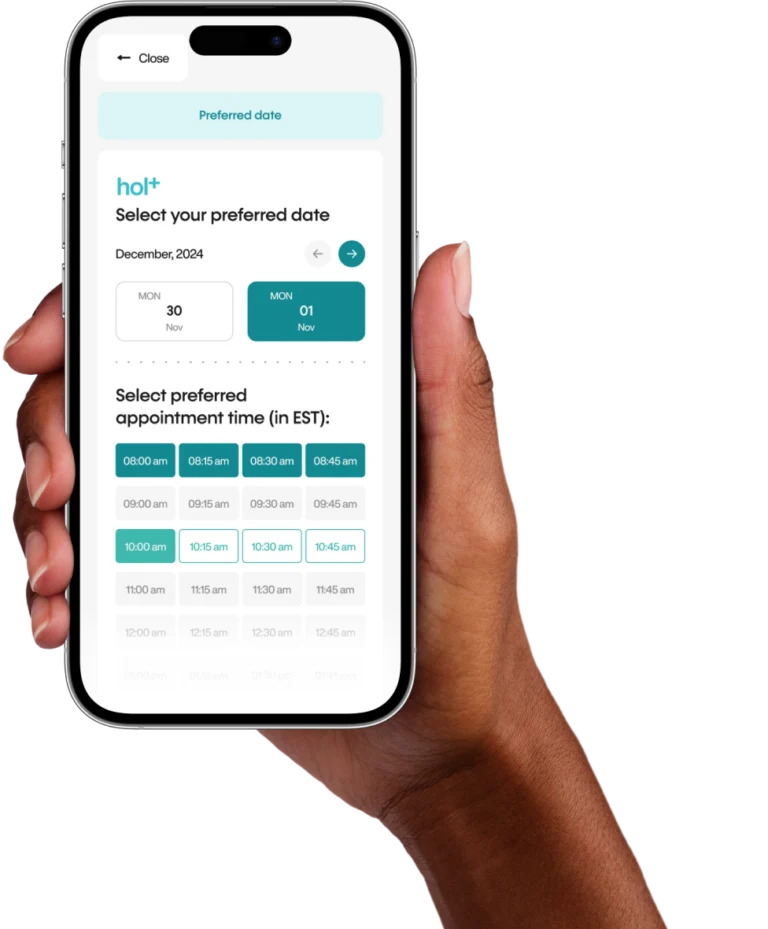Feeling tired, foggy, or noticing shifts in your energy, mood, or hormones? You’re not alone. As we age, hormone levels naturally fluctuate, affecting everything from testosterone and estrogen to cortisol and overall vitality. The good news? There are natural ways to support balance—but which one is right for you?
When it comes to pregnenolone vs DHEA, both are powerful hormone precursors, but they don’t work the same way. Pregnenolone is the starting point for many hormones, while DHEA plays a more direct role in testosterone and estrogen production. Should you take one, both, or neither? Let’s explore how they work, what they support, and how to decide which is best for you.
Brain Fog? Low Energy? Understanding Pregnenolone and DHEA
Your hormones influence everything—energy, focus, metabolism, mood, and even how well you handle stress. When they’re in balance, you feel strong, clear-headed, and resilient. When they’re off, you might feel fatigued, foggy, or out of sync. Two of the most important players in hormone balance are pregnenolone and DHEA. These natural hormone precursors help the body produce testosterone, estrogen, progesterone, and cortisol, supporting brain function, metabolism, and vitality.
Pregnenolone: The “Master Hormone”
Pregnenolone is your hormonal starting point—it fuels the production of many other hormones that affect stress, mood, and cognitive function.
- Supports brain function & memory, making it key for mental clarity and focus.
- Neuroprotection – Plays a role in reducing cognitive decline, supporting long-term brain health.
- Stress Resilience – Supports adrenal function and cortisol balance, helping the body adapt to stress.
- Joint & Skin Health – Contributes to collagen production and tissue repair, promoting joint flexibility and skin elasticity.
DHEA: The “Youth Hormone”
DHEA is more directly linked to testosterone and estrogen, making it essential for hormonal balance, metabolism, and energy levels.
- Hormonal Balance – Boosts testosterone and estrogen, which influence energy, libido, and overall vitality.
- Muscle Growth & Fat Loss – Supports metabolism and lean muscle maintenance, making it popular for active individuals and aging adults.
- Anti-Aging & Longevity – Helps improve skin, bone density, and overall vitality, keeping the body feeling strong.
- Immune Support – Plays a role in regulating inflammation and supporting immune function, contributing to overall health.
Two Hormones, Two Unique Roles
Both pregnenolone and DHEA are key to feeling strong, sharp, and energized, but they serve different functions. If you’re looking to sharpen mental clarity, boost stress resilience, or support adrenal health, pregnenolone might be the better fit. If you’re more focused on hormonal balance, metabolism, and longevity, DHEA could be what you need. The right choice depends on your body’s needs and long-term health goals.
That said, hormonal supplements should never be taken blindly. Because pregnenolone and DHEA influence multiple hormone pathways, it’s crucial to get proper lab testing and work with a healthcare provider to determine what your body actually needs. Supplementing without guidance can lead to imbalances, unwanted side effects, or interference with other hormones.
Risks & Side Effects of Pregnenolone vs DHEA
Pregnenolone and DHEA can support hormonal balance, brain function, and metabolism, but they aren’t without risks. Because they act as precursors to multiple hormones, taking them without proper guidance can lead to imbalances, unwanted side effects, or overstimulation of certain pathways.
Before supplementing, it’s essential to understand their potential side effects, how they interact with your body, and who should be cautious when using them.
Pregnenolone Risks & Considerations
Pregnenolone plays a key role in stress response and neurosteroid production, but too much—or improper balance—can create unwanted effects.
- Can increase cortisol if the body converts too much into stress hormones, leading to anxiety, irritability, or poor sleep.
- May cause mood swings, headaches, or overstimulation when taken in high doses. Some people feel energized; others feel restless.
- Should be monitored in individuals with anxiety or high-stress levels, as it can amplify nervous system activity rather than calm it.
DHEA Risks & Considerations
DHEA is more directly tied to testosterone and estrogen, which means it has a stronger effect on hormonal balance—and that comes with some risks.
- Can increase estrogen or testosterone too much, which may lead to hormonal imbalances, mood changes, or irritability.
- May contribute to acne, hair thinning, or mood swings, especially in those prone to hormonal fluctuations.
- Not ideal for those with hormone-sensitive conditions, including PCOS, prostate issues, or estrogen-dominant disorders, as it can shift hormone ratios in the wrong direction.
Want to learn more? Schedule a FREE 15 minute consultation
Schedule Your Consultation
Healing Hormones Naturally—A Smarter Path to Balance with Hol+
Balancing hormones isn’t just about taking a supplement or adjusting one number on a lab test. True hormonal health comes from supporting the entire body—metabolism, stress levels, gut health, and lifestyle habits all play a role. When any of these are off, hormonal imbalances can cause fatigue, brain fog, mood swings, and sluggish metabolism.
At hol+, we take a personalized, whole-body approach to restoring balance. By using advanced testing, functional nutrition, and integrative therapies, we help you rebalance your hormones naturally, so you can feel stronger, clearer, and more energized every day.
We go beyond surface-level solutions, identifying what’s really driving hormonal imbalances and correcting them at the root.
- Comprehensive Hormone Testing – We assess testosterone, estrogen, cortisol, thyroid function, and adrenal health to get the full picture of what’s impacting your hormones.
- Personalized Nutrition & Lifestyle Support – Optimizing hormones isn’t just about supplements—we focus on diet, stress reduction, sleep, and movement to create a sustainable plan that supports long-term balance.
- IV Therapy & Functional Medicine – Nutrient deficiencies, inflammation, and metabolic imbalances all affect hormones. We offer targeted IV therapy and functional medicine strategies to restore adrenal, metabolic, and brain health.
Holistic Stress & Cognitive Support
Your brain and hormones are deeply connected—chronic stress, poor sleep, and mental fatigue all disrupt hormonal balance. That’s why we integrate:
- Mind-body therapies like acupuncture, breathwork, and nervous system support to help regulate stress hormones.
- Cognitive performance strategies to optimize focus, energy, and long-term brain health.
The Hol+ Difference
When hormones are balanced, energy levels improve, mental clarity returns, and your body feels stronger and more resilient. At hol+, we help you achieve true hormonal harmony—not just a quick fix, but a long-term solution for lasting wellness.
Take Charge of Your Hormones, the Holistic Way
Choosing between pregnenolone vs DHEA isn’t just about picking one supplement over another—it’s about understanding what your body truly needs. Both play important roles in hormonal balance, cognitive function, and overall well-being, but they work differently. Pregnenolone is key for brain health, stress adaptation, and adrenal support, while DHEA is more directly tied to testosterone, estrogen, and metabolic health. The right choice depends on your symptoms, lifestyle, and lab results.
At hol+, we take the guesswork out of hormone optimization. Through comprehensive testing, personalized nutrition, and integrative therapies, we help you restore balance naturally and effectively. If you’re ready to take control of your hormonal health and feel like yourself again, schedule an appointment today and start your journey toward lasting wellness.
FAQs
What’s the main difference between pregnenolone vs DHEA?
Pregnenolone is a precursor hormone that helps produce DHEA, cortisol, progesterone, and testosterone, supporting brain function and stress resilience. DHEA, on the other hand, is more directly involved in testosterone and estrogen production, influencing metabolism, libido, and muscle maintenance.
Can you take pregnenolone and DHEA together?
Some people do, but it depends on your hormone levels and health goals. Because both influence hormone production, taking them together without proper testing could create imbalances. It’s best to work with a provider who can tailor the approach to your needs.
How does hol+ approach hormone balance differently?
We take a root-cause approach, looking at hormones, metabolism, gut health, and stress resilience. Instead of just supplementing, we use comprehensive testing, personalized nutrition, and functional medicine to restore balance naturally.
Does hol+ offer hormone testing before recommending supplements?
Absolutely. We believe in testing before supplementing. Our comprehensive lab work evaluates testosterone, DHEA, pregnenolone, cortisol, thyroid, and more, ensuring we create a personalized plan that supports your unique needs.
Who should avoid taking pregnenolone or DHEA?
Anyone with hormone-sensitive conditions (like PCOS, prostate issues, or estrogen dominance) should be cautious. Pregnenolone can affect cortisol and brain chemistry, while DHEA can raise testosterone or estrogen levels. Always check with a healthcare provider before supplementing.


